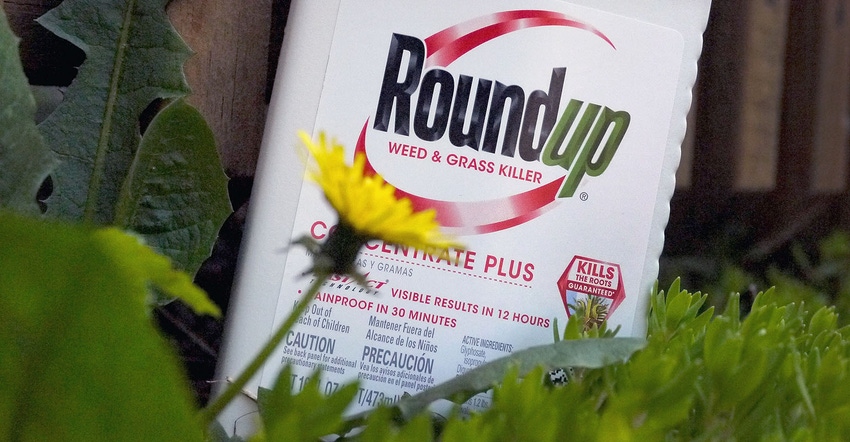January 30, 2020

After a review of the best available science, as required under the Federal Insecticide, Fungicide, and Rodenticide Act, EPA has concluded that there are no risks of concern to human health when glyphosate is used according to the label and that it is not a carcinogen.
These findings on human health risk are consistent with the conclusions of science reviews by many other countries and other federal agencies, including the U.S. Department of Agriculture, the Canadian Pest Management Regulatory Agency, the Australian Pesticide and Veterinary Medicines Authority, the European Food Safety Authority, and the German Federal Institute for Occupational Safety and Health.
The agency is requiring additional mitigation measures to help farmers target pesticide sprays to the intended pest and reduce the problem of increasing glyphosate resistance in weeds, including:
EPA required spray drift management labeling to reduce off-target spray drift and protect non-target plants and wildlife.
EPA required registrants to update the label language to raise awareness of their potential effects to pollinator habitat.
Glyphosate has been studied for decades and the agency reviewed thousands of studies since its registration. Glyphosate, the most widely used herbicide in the United States, is used on more than 100 food crops, including glyphosate-resistant corn, soybean, cotton, canola, and sugar beet.
Among EPA's findings:
Due to its widespread use, trace amounts of glyphosate residues may be found in various foods. However, there is no risk of concern from ingesting food with glyphosate residues.
There are no risks of concern for children entering or playing on residential areas treated with glyphosate.
It is not likely that glyphosate is carcinogenic in humans.
Bayer welcomes the EPA's decision.
“EPA’s latest decision on glyphosate-based herbicides adds to the overwhelming consensus among leading expert health regulators worldwide for more than 40 years that these products can be used safely and that glyphosate is not carcinogenic,” said Liam Condon, member of the Board of Management of Bayer AG and President Crop Science Division. “Glyphosate-based herbicides are one of the most thoroughly studied products of their kind, which is a major reason why farmers around the world continue to rely on these products not only for effective weed control, but also to minimize tillage farming practices, reduce greenhouse gas emissions, preserve more land for native habitats, and provide enough food to meet the needs of a growing population worldwide. EPA’s science-based, in-depth assessment by its expert team reflects a gold standard for scientific rigor that is respected by regulators and scientists across the globe.”
The Center for Biological Diversity said EPA's assessment contradicts a 2015 World Health Organization analysis and ignores evidence from the EPA's Office of Research and Development and the Department of Health and Human Services' Agency for Toxic Substances and Disease Registry.
“The Trump EPA’s assertion that glyphosate poses no risks to human health disregards independent science findings in favor of confidential industry research and industry profits,” said Lori Ann Burd, the Center for Biological Diversity’s director of environmental health.
EPA uses interim decisions to finalize enforceable mitigation measures while conducting other longer-term assessments. EPA will next complete a draft biological evaluation for glyphosate, which is anticipated for public comment in Fall 2020.
Glyphosate was first registered in 1974. EPA initiated registration review for glyphosate in 2009. In 2010, the agency required the pesticide registrants to conduct additional studies. In 2015, EPA reexamined the carcinogenic potential of glyphosate. In April 2019, EPA released the glyphosate proposed interim decision.
What else is happening regarding glyphosate?
Reuters reports that Bayer is considering stopping sales of the weedkiller to private users for use in their gardens.
Rakesh Kilaru, a partner with the Washington, D.C., law firm Wilkinson Walsh, which is defending the maker of Roundup, said Monsanto is emphasizing that EPA has deemed glyphosate safe when used according to label directions. – Southwest Farm Press
The Kellogg Company has committed to phasing out the use of glyphosate as a pre-harvest drying agent in its major wheat and oat supply chains by 2025. – Michigan Farmer
About the Author(s)
You May Also Like




